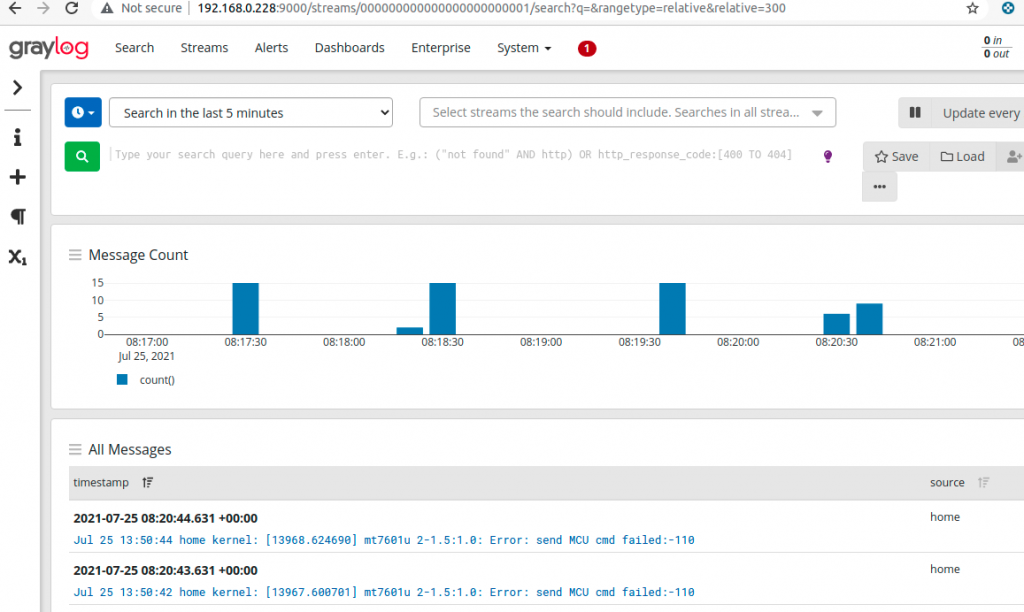Why Strace?
– Trace system call
– Troubleshooting issue with any binary command
– Debugging
strace ls
strace -c ls
strace -e trace=network nc -v -n 127.0.0.1 8080More:
https://www.geeksforgeeks.org/strace-command-in-linux-with-examples/
Why Strace?
– Trace system call
– Troubleshooting issue with any binary command
– Debugging
strace ls
strace -c ls
strace -e trace=network nc -v -n 127.0.0.1 8080More:
https://www.geeksforgeeks.org/strace-command-in-linux-with-examples/
Why buildkit?
– Better build logs
– Better build cache
Temp enable buildkit
nginx.Dockerfile
# syntax=docker/dockerfile:1.3-labs
FROM nginx
COPY <<EOF /usr/share/nginx/html/index.html
"hola Duniya"
EOF
DOCKER_BUILDKIT=1 docker build -t here-nginx -f nginx.Dockerfile .Enable buildkit permanently :
echo "{ "features": { "buildkit": true } }" > /etc/docker/daemon.json
systemctl restart dockerMore : https://github.com/moby/buildkit
pip3 install adafruit-circuitpython-dht
apt-get install libgpiod2
temp.py
import Adafruit_DHT
import time
DHT_SENSOR = Adafruit_DHT.DHT11
DHT_PIN = 4
#while loop is there because sometime it does not get the temp.
while True:
humidity, temperature = Adafruit_DHT.read(DHT_SENSOR, DHT_PIN)
if humidity is not None and temperature is not None:
print("Temp={0:0.1f}C Humidity={1:0.1f}%".format(temperature, humidity))
else:
print("Sensor failure. Check wiring.");
time.sleep(1);
run:
python3 temp.py
For DHT22 sensor:
temp-dht22.py
import Adafruit_DHT
import time
DHT_SENSOR = Adafruit_DHT.DHT22
DHT_PIN = 4
humidity, temperature = Adafruit_DHT.read(DHT_SENSOR, DHT_PIN)
if humidity is not None and temperature is not None:
#print("Temp={0:0.1f}C Humidity={1:0.1f}%".format(temperature, humidity))
print("{0},{1}".format(temperature, humidity))
root@lp-arm-1:~# cat /opt/cron/get_temp_dht22.sh
#!/bin/bash
t_and_h=$(python3 /opt/cron/get_temp_dht22.py)
temprerature=$(echo $t_and_h | awk -F ',' '{print $1}')
humidity=$(echo $t_and_h | awk -F ',' '{print $2}')
echo "room_temp $temprerature" | curl --data-binary @- http://192.168.0.183:30008/metrics/job/room_temp/instance/lp-arm-1
echo "room_humidity $humidity" | curl --data-binary @- http://192.168.0.183:30008/metrics/job/room_humidity/instance/lp-arm-1
We can use –mount type=bind parameter to mount single file
docker run -d -p 9090:9090 --mount type=bind,source=/opt/prometheus/prometheus.yml,target=/etc/prometheus/prometheus.yml prom/prometheus:v2.22.0Using docker-compose file
version: "3.7"
services:
prometheus:
image: prom/prometheus:v2.22.0
volumes:
- type: bind
source: /opt/prometheus/prometheus.yml
target: /etc/prometheus/prometheus.yml
ports:
- 9090:9090 More : https://stackoverflow.com/questions/42248198/how-to-mount-a-single-file-in-a-volume
Note : This does not work because IO pins does not enough power to run fan.
fan.py
import RPi.GPIO as GPIO
from time import sleep
import sys
GPIO.setwarnings(False)
GPIO.setmode(GPIO.BOARD)
GPIO.setup(8, GPIO.OUT, initial=GPIO.LOW)
if sys.argv[1] == "on":
GPIO.output(8, GPIO.HIGH)
print("on")
else:
GPIO.output(8, GPIO.LOW)
print("off")Dockerfile
FROM python:slim-buster
WORKDIR /fan
RUN apt update && \
apt install python-rpi.gpio python3-rpi.gpio -y
COPY fan.py .Docker build
docker build -t fan .Docker run command switch on
docker run -it --device /dev/gpiomem fan python2 fan.py onDocker run command switch off
docker run -it --device /dev/gpiomem fan python2 fan.py offfan.sh
#!/bin/bash
cpu=$(</sys/class/thermal/thermal_zone0/temp)
cpu_temp=$(echo "$cpu/1000" | /usr/bin/bc)
echo $cpu_temp
if(("cpu_temp" >= "65"))
then
echo "more 65 on fan"
docker run -it --device /dev/gpiomem fan python2 fan.py on
else
echo "less 65 off fan"
docker run -it --device /dev/gpiomem fan python2 fan.py off
fi
More: https://raspberrypihq.com/making-a-led-blink-using-the-raspberry-pi-and-python/
https://stackoverflow.com/questions/48441737/docker-error-no-access-to-dev-mem-try-running-as-root
More : https://docs.graylog.org/en/4.0/pages/installation/docker.html
version: '2'
services:
mongodb:
image: mongo:4.2
elasticsearch:
image: docker.elastic.co/elasticsearch/elasticsearch-oss:7.10.2
environment:
- http.host=0.0.0.0
- transport.host=localhost
- network.host=0.0.0.0
- "ES_JAVA_OPTS=-Xms512m -Xmx512m"
ulimits:
memlock:
soft: -1
hard: -1
mem_limit: 1g
graylog:
image: graylog/graylog:4.0
environment:
- GRAYLOG_PASSWORD_SECRET=somepasswordpepper
- GRAYLOG_ROOT_PASSWORD_SHA2=8c6976e5b5410415bde908bd4dee15dfb167a9c873fc4bb8a81f6f2ab448a918
- GRAYLOG_HTTP_EXTERNAL_URI=http://192.168.0.228:9000/
entrypoint: /usr/bin/tini -- wait-for-it elasticsearch:9200 -- /docker-entrypoint.sh
links:
- mongodb:mongo
- elasticsearch
restart: always
depends_on:
- mongodb
- elasticsearch
ports:
# Graylog web interface and REST API
- 9000:9000
# Syslog TCP
- 1514:1514
# Syslog UDP
- 1514:1514/udp
# GELF TCP
- 12201:12201
# GELF UDP
- 12201:12201/udp
- 5555:5555
- 5551:5551
Note : 5555 port will be used for filebeat as logstash output
System / inputs >> select input > Beats > launch input > global tick > titile > port = 5555 > threads =2 > Save

/etc/filebeat/filebeat.yml

Output:

Raw/Plaintext TCP
System / inputs >> select input > Raw/Plaintext TCP > launch input > global tick > titile > port = 5551 > threads =2 > Save
for sending Raw/Plaintext TCP
echo "this is log" > /dev/tcp/grelog_server/5551http://192.168.0.228:8080/app1 => http://192.168.0.228:8081
http://192.168.0.228:8080/app2 => http://192.168.0.228:8082
haproxy.cfg
global
daemon
maxconn 256
defaults
timeout connect 10s
timeout client 30s
timeout server 30s
mode http
maxconn 3000
frontend http_in
bind *:8080
use_backend app1_backend if { path /app1 }
use_backend app2_backend if { path /app2 }
backend app1_backend
http-request set-path %[path,regsub(^/app1/?,/)]
server server1 192.168.0.228:8081
backend app2_backend
http-request set-path %[path,regsub(^/app2/?,/)]
server server1 192.168.0.228:8082more : https://grafana.com/tutorials/run-grafana-behind-a-proxy/#configure-haproxy
kubeadm certs check-expiration
kubeadm certs renew allerror : x509: certificate has expired or is not yet valid
Note : move /etc/kubenetes/admin.conf to /root/.kube/config and restart control node and worker node to update cert
https://kubernetes.io/docs/tasks/administer-cluster/kubeadm/kubeadm-certs/
npm install -g localtunnel
lt --port 8000lt --port 8000 --subdomain piserver
https://github.com/localtunnel/localtunnel
Alternative – https://ngrok.com/